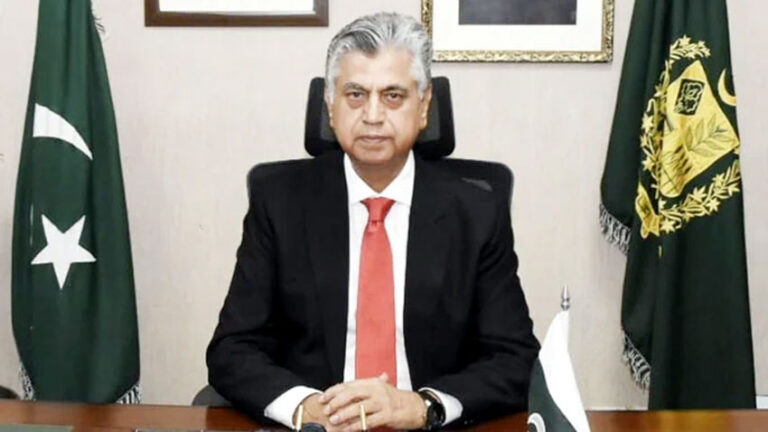SC decides to indict TV channel’s chief executive, anchor
ISLAMABAD: The Supreme Court finally made up its mind on Monday to prosecute Salman Iqbal, chief executive of a private television network and anchorperson Mubashir Lucman and decided to indict them for airing scandalous and defamatory programmes against the judiciary.
“After going through the transcript of a talk show on ARY ‘Khara Such’ aired on May 29, 2014 and the reply submitted by the respondents we prima facie are of the view that a case for initiating contempt proceedings under Article 204 of the Constitution read with the Contempt of Court Ordinance 5 of 2003 is made out,” observed Justice Ejaz Afzal who is heading a three-judge Supreme Court bench.
The court also decided to frame charge against the respondents on Oct 30.
The court was hearing the case relating to the Khara Such hosted by anchorperson Mubashir Lucman on May 29, in which a number of defamatory allegations were levelled against Justice Jawwad. S Khawaja — his close relationship with Mir Shakeelur Rehman, the owner of Geo TV network and the sale of a property in Lahore to the Punjab government by the wife of the judge.
The allegations were raised after Justice Jawwad Khawaja’s hearing of a petition moved by Geo TV network for immediate intervention to halt what they called ‘hate campaign’ against the channel.
Both the respondents have to appear before the court in person to hear the charges, though under Section 19 of the contempt law they can move an intra court appeal before a larger bench of the court against the decision of framing a charge.
Under Section 2 of the same law a contemnor can tender apology at any stage and the court if satisfied may discharge the proceedings. But if convicted, the maximum punishment the respondents could get for committing contempt of the court will be six-month imprisonment.
Under the law, the office of the Attorney General always acts as prosecutor in a contempt of court trial before a Supreme Court bench.
“The decision to indict the contemnors for committing contempt of the judiciary at the end of the current month would help discourage the tendency of ridiculing the judiciary in the eyes of the public, commented Advocate Sheikh Ehsanuddin who is representing former chief justice Iftikhar Muhammad Chaudhry in the defamation notice to PTI chief Imran Khan.
The court decided to indict the respondents ignoring a request by Advocate Irfan Qadir to exercise restraint arguing that such a decision would not augur well for the higher position of the judiciary which has to dispense justice to the people.
He said that both the respondents had filed their replies in line with the Sept 29 direction to submit their justification and claimed that they did nothing to ridicule or defame any judge.
He also reminded the court that a defamation suit was pending somewhere in a relevant court which was moved by wife of Justice Khawaja. Any order by the Supreme Court would influence the defamation case since the issue was almost the same, the counsel said.
But the court observed that the suit for damages had its own consequences and pendency of such a case before a trial court never came in the way of contempt proceedings. “The court will proceed to determine whether the judge (Justice Khawaja) had been ridiculed or defamed,” Justice Afzal observed.
The counsel also submitted a June 19 order of Chief Justice Nasir-ul-Mulk who chose not to initiate contempt proceedings against the same contemnor despite the fact that objectionable material had been aired against him and the entire judiciary in the same programme.
Earlier the bench refused to entertain a classified report submitted by the Islamabad Police in a sealed cover after completion of investigations relating to defamatory and critical banners against Justice Jawwad Khawaja which had popped up in Islamabad when the Supreme Court was hearing the case moved by Geo TV.
The court ordered the Additional Attorney General Waqar Rana that it was not inclined to open it because the court did not believe in keeping documents in opaque privacy.
Let the commission of the offence be investigated independently in a transparent manner and let the findings be submitted in open court in two weeks.


